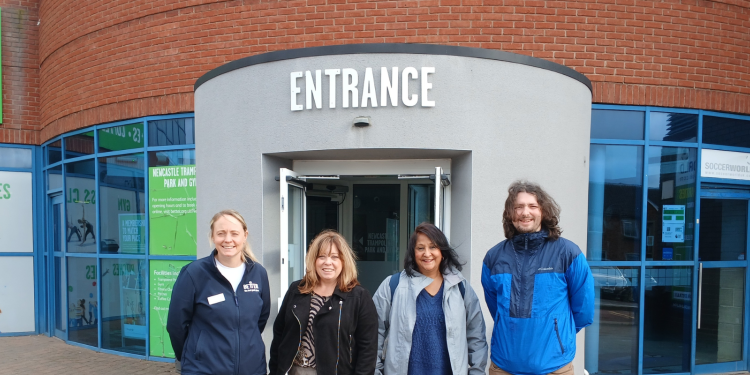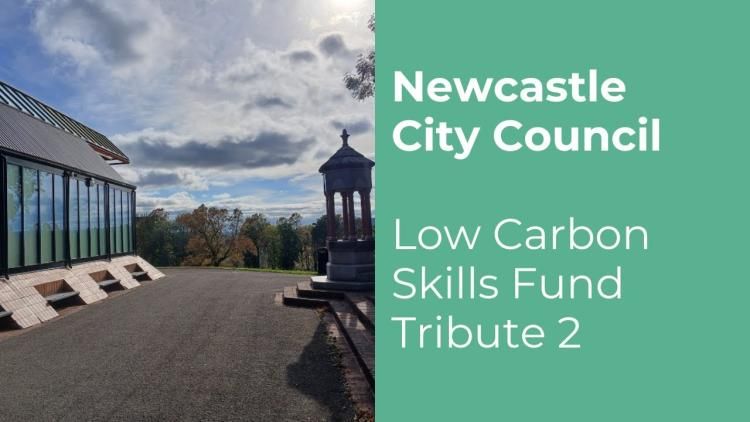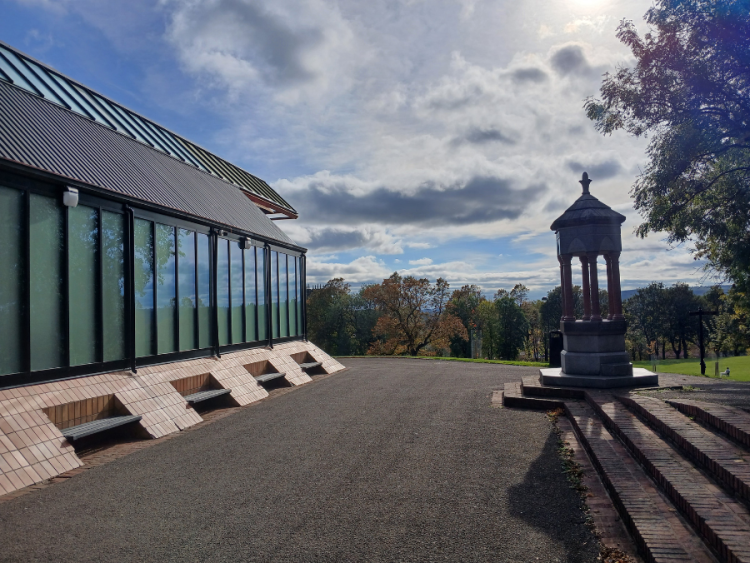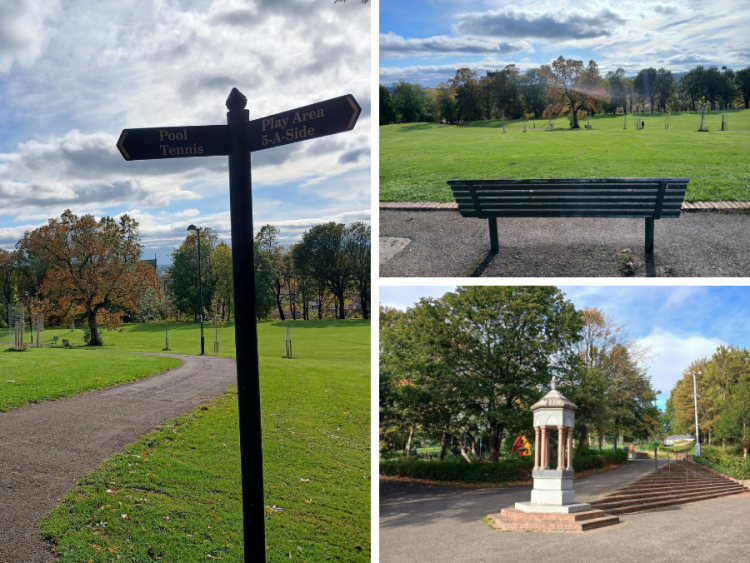Jumping for joy: Newcastle bounces into a greener future

"I'm absolutely thrilled that the council has used this money and got so far towards our net zero goal while, at the same time, enhancing community facilities" beams Farah Hussain, Newcastle City Council's senior project manager.
"We've learnt so much, we're much more confident about how we'll complete the net zero journey," Farah added.
The authority is one of the many recipients from the Low Carbon Skills Fund, which saw £78.3 million in grants awarded to more than 1,100 decarbonisation projects across England ranging from schools and hospitals to leisure centres and museums.
Over the coming weeks we'll be sharing some of the many success stories from a variety of recipients across the country and throughout the five phases of the scheme.
Our teams at Salix delivered the funding, now closed, on behalf of the Department for Energy Security and Net Zero between 2020 and 2025.
As part of our Low Carbon Skills Fun campaign, we’re thrilled to showcase what has been achieved thanks to the government funding over the years.
We begin our Low Carbon Skills Fund celebratory series in the North East of England, where one of the grants was awarded to green energy measures at a Newcastle City Council owned trampoline park - and, as you can see from our video below, we took the chance to go inside for a bounce.
Main picture, from left: Alison Westworth - GLL, Ann Hayward, Farah Hussain and Lloyd Reece - Newcastle City Council. Credit: Salix Finance

Video: Watch our visit to Newcastle Trampoline Park as we explore impacts of the Low Carbon Skills Fund
"At the time it was a huge opportunity to decarbonise facilities that are important to the community," Farah told us.
"So, we wanted to get our carbon emissions right down but we also wanted to get investment into the facilities.
"It was actually during Covid and our biggest fear was that these types of places would be under so much pressure that they would just close, so it was just a massive opportunity to get investment in to make sure the buildings are safe for the future."
Across Phases 1, 3 and 4, Newcastle City Council successfully applied for more than £2.7 million from the Low Carbon Skills Fund, with more than £2,200 spent at the Trampoline Park to support provisional design works.
This gave them an opportunity to shape how they would create a more energy efficient side. The authority then also received almost £1.2 million for the Public Sector Decarbonisation Scheme, also delivered by our teams, for capital works.
Applying for Low Carbon Skills Funding gave Farah and her colleagues "confidence."
"We’ve learnt so much," she continued. "If we hadn’t used the Low Carbon Skills Fund, taken a chance and looked at feasibility then we never would have learnt what we know today.
"We've put a huge solar pv panel array on the roof so that the site generates a lot of its own electricity, reduced gas use by putting in air source heat pumps and we also upgraded the floodlights outside to LED."
'We all have our responsibility to contribute to the climate change crisis'
Newcastle City Council didn't do this alone and Farah praised the teamwork involved saying "it's so important to work with partners."
As well as our colleagues from Salix, the council was also helped by its leisure partner, GLL - a worker-owned, charitable enterprise which runs almost 400 facilities including leisure centres and libraries.
"In terms of being green, it’s so important for what we do. We have our own net zero target of 2050. We constantly look at reducing our carbon footprint," said Alison Westworth, partnership manager for GLL in Newcastle.
"From a personal point of view, we all have our responsibility to contribute to the climate change crisis. I’m really proud to work for an organisation that really values that and it’s been fantastic to see the decarbonisation project in Newcastle.
"There’s been a massive change in the last ten years when GLL came in to operate the leisure facilities. We’ve seen massive investment and then the second phase of that is looking at our decarbonisation projects and reducing carbon emissions.
“There’s been a huge shift in what we think. When you walk around any of the facilities we run you’ll see the staff are focussed on our green agenda."

Just over a mile away from the trampoline park is another beneficiary of the Low Carbon Skills Fund, again a crucial leisure facility.
"Elswick Community Pool and Gym had closed down," said Ann Hayward, program officer for Newcastle City Council. "There was a community group who took it on after the council closed it in 2019, so bringing back this back has made a massive difference.
"I know that people in the community wouldn’t have otherwise had the opportunity to partake in leisure activities, health and fitness activities, and even safety activities like learning to swim - which otherwise wouldn’t have been possible in this area."
Newcastle City Council received more than £1 million from Low Carbon Skills Fund Phase 4, £36,000 of which was spent in Elswick, which was used to design the pool up to RIBA stage 4 - a technical design phase including design detail, building specifications and procurement. A further £2 million from Phase 3c of the Public Sector Decarbonisation Scheme was also spent on capital works at the site.
The pool re-opened in July 2025, with the council having also secured funding from Sport England and the North East Combined Authority's Green New Deal Fund.
Newcastle City Council has estimated that the work would save the carbon equivalent of 2,352 round-trip flights from Newcastle to New York over the building's lifetime.

Elswick Community Pool and Gym in the West End of Newcastle also received a grant from the Low Carbon Skills Fund. Credit: Salix Finance
Ann added: "Without the funding, you probably wouldn’t consider undertaking a scheme as wide as this in a public building. The funding itself has been instrumental in enabling the council to look at the wider programme, so I would thoroughly encourage people to engage in that kind of process.
"It brings so many other wider benefits of improving the buildings that you would be able to apply the funding to and benefit the community and benefit the outcomes that the local authorities and public bodies want to achieve.
"When the pool got taken over five years ago, it was always our intention to improve our green strategy to become more carbon neutral. Funding became available and we were able to work with partners and secure that."
The benefits of the work are already being seen.
"We’ve been able to get the roof re-insulated, which has guaranteed the next 20 years of sustainability," said centre manager, Phil Jameson.
"In the building itself - because the glazing has insulated - that’s given us a really good start. With the heating, we’ve seen the electricity bills come down - so, altogether as a combination of packages, that’s working really well for us going forwards."
For Ann, it's been a journey of discovery, but not one she thinks is complete for her or the council just yet.
"When I first got involved in this project, I knew very little about the Public Sector Decarbonisation Scheme or the Low Carbon Skills Fund or Salix or heat decarbonisation. I’ve had a huge learning curve of a journey learning about energy consumption, fabric improvements and the whole ethos of net zero. There’s a massive amount of work still to be done and it would be exciting to be involved in it."

Elswick Community Pool and Gym is situated in Elswick Park, which was refurbished in 2007 and has other facilities including a playpark and sports pitches. Credit: Salix Finance



